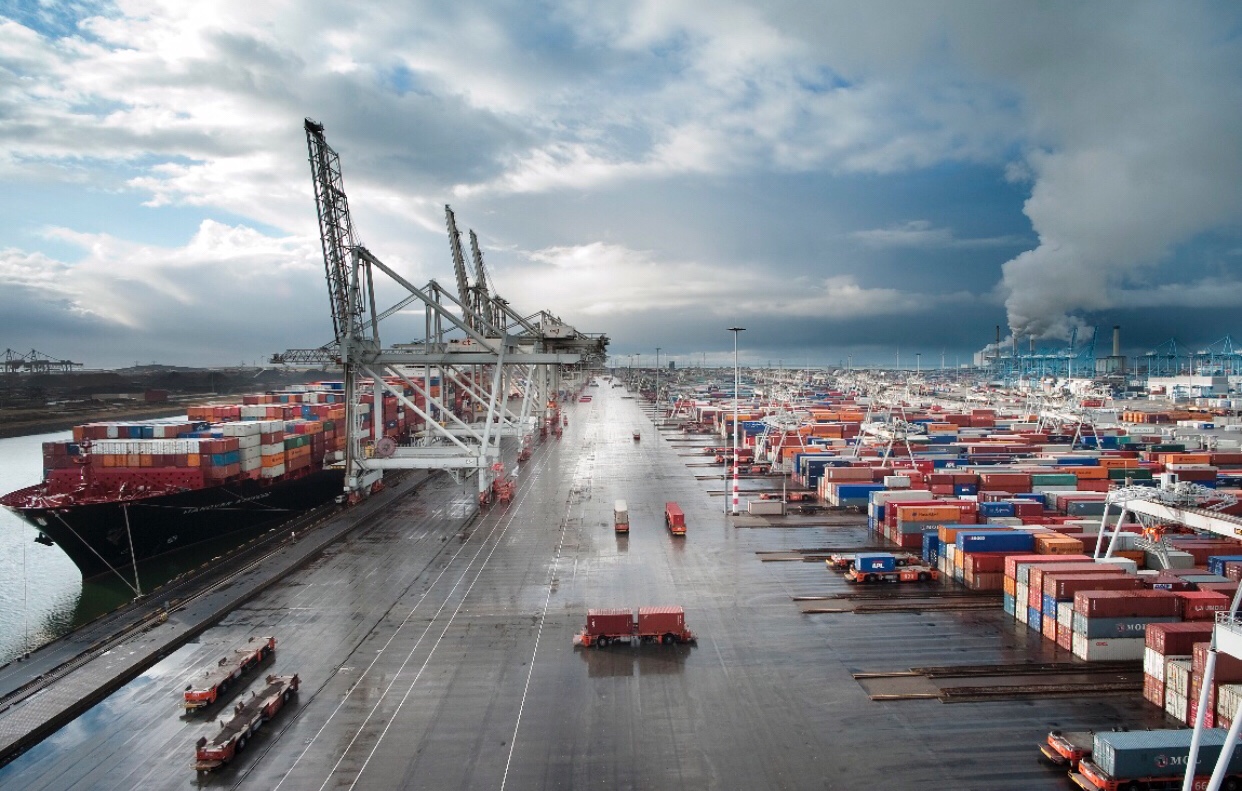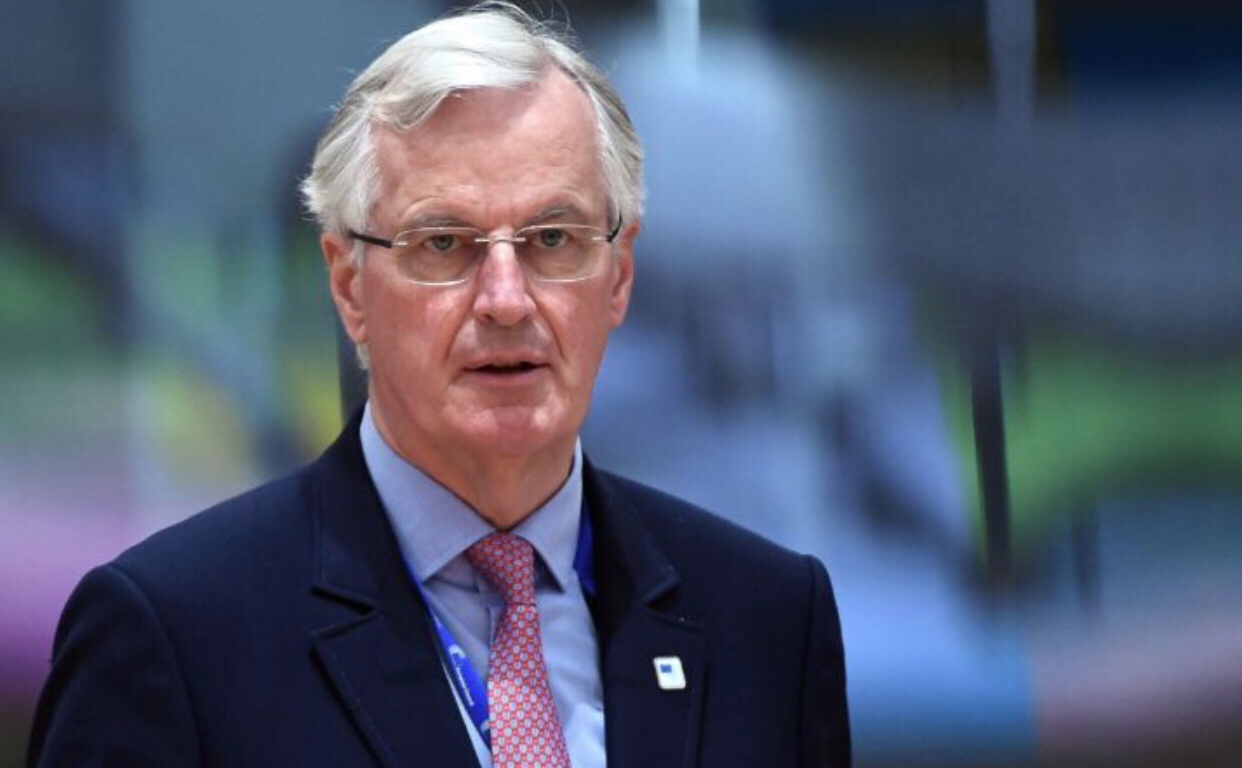Most of Dutch companies dealing with the United Kingdom is still insufficiently prepared for Brexit. Many German companies are either doing enough to meet the challenges of Brexit.

Preprations and contingency planning is vital at this stage. Preparations needs to start now, today. Export to the United Kingdom are at risk when UK leaves the EU on 29 Match 2019, 199 days from now. The Port of Rotterdam Authority is now issuing a sharp warning for this.
There is still no agreement between Brussels and London on the conditions for the UK to leave EU through Brexit. Although there is much unclear about the deal (or no-deal) – also UK companies can do more than they do.

‘If they do not prepare, we will end up in deep trouble’, says head of external relations Mark Dijk, Port of Rotterdam on Tuesday at a meeting on the consequences of the Brexit for the port. Rotterdam is the largest sea port of Europe.
According to Dijk, research shows that only 18 percent of companies prepare themselves for Brexit. That is not an exclusive Dutch problem. Dijk is also worried about German entrepreneurs. Many German exports run via Rotterdam. “People are not working on that.”
The Port of Rotterdam will hold a test in November to check whether the port is Brexit-proof.

According to the Brexit coordinator of Customs, Roel van ‘t Veld,’ it still seems to be very uncertain for entrepreneurs. ‘Although there is no agreement about the conditions of Brexit, he believes that there are many things that companies can do. He warns that ‘it will never be as it was’, even if the UK remains part of the customs union.

Van ‘t Veld gives an example:’ If you want to export ready-made meals from the Netherlands to the United Kingdom, you need two documents. ‘ There are nine after Brexit. Something similar happens with the export from the United Kingdom to the Netherlands.
Some 35,000 companies that trade with the UK have never done business with countries outside the EU. ‘They will have to file a declaration with the customs authorities for each shipment,’ says Van ‘t Veld. According to MKB Nederland, it is true that, in particular, many smaller companies that do business with UK are ‘not or not at all’ working on Brexit preparations at all.
Companies do not have to sit still, says Van ‘t Veld. He knows a company that did a ‘test shipment’ to Canada to gain experience with the customs process. The United Kingdom will soon be in a similar position to the EU as that country. Don’t wait, prepare now.
Roel Van’t Veld will speak at the KGH Brexit Symposium in Soest on 20-21 November 2018. Don’t miss the event of the year.
For more information: Brexit Symposium
‘Realistic’, is the key word.
BBC reports that the EU’s chief negotiator said if both sides are “realistic” there could be an agreement on the terms of the UK’s exit by early November.
His comments come amid unconfirmed reports a one-off summit of EU leaders could be convened in the middle of November to sign off the agreement.

The BBC’s Katya Adler said Mr Barnier’s tone may have changed but the substance of his arguments was still the same.
While the EU was not about to compromise its Brexit principles, our Europe editor said the bloc was aware of Mrs May’s domestic political troubles and “planned to throw her as much of a lifeline as possible”.
Mrs May has been warned she faces a mass Tory rebellion if she persists with her Chequers plan for future relations with the EU, with former Brexit minister Steve Baker claiming as many as 80 Tories could oppose it in a Commons vote later this year.
The UK and EU are hoping to finalise the so-called divorce agreement and agree a statement on their future economic co-operation in time for an EU summit in mid-October or by the end of the month at the latest.
Mr Barnier has said this is vital if the UK and EU Parliaments are to have enough time to consider and vote on the proposals before the UK’s scheduled departure on 29 March 2019.
But some senior Tory Brexiteers are continuing to urge the PM to change course, saying proposals agreed by her cabinet in July – which would see the UK follow EU rules on trade in goods – will not be backed by Parliament.
Mr Baker said the party risked a “catastrophic split” if the PM didn’t rethink her approach, which he suggested many MPs – including some who backed Remain – thought was worse than staying in the EU as it would leave the UK without any say in its rules.
A key argument that has been made by MPs opposed to the Chequers deal in recent weeks is that the EU will not accept it, since it seeks different levels of market access and obligations for goods and services.

After meeting Mr Barnier last week, Brexiteer Jacob Rees-Mogg said the Frenchman’s views were closer to his than those of the prime minister while Labour MP Stephen Kinnock claimed he told him and other MPs that, referring to the Chequers plan, “les propositions sont mortes” (the proposals are dead).
But asked about this at the Bled Strategic Forum in Slovenia, Mr Barnier said this was not true. “I never said that, I don’t think that. It is not my feeling.”
He described the Chequers plan as a “very important” document and suggested the EU was now “benchmarking” it against the mandate it had been given by the EU’s 27 other members.
“It is useful because it clearly defines what the wishes are for the UK for future relations.”
Mr Barnier said there were “many, many points of convergence” between the two sides, particularly over defence and security and a deal on the terms of withdrawal could be settled within six to eight weeks.
But he warned that the UK’s core proposals for trading relations after it leaves were a direct challenge to the founding principles of the EU and the integrity of the single market.
“It is not possible to get freedom for goods without freedom for services, in particular for the movement of people,” he said.
Salzburg meeting
The BBC’s Katya Adler said there was a suggestion EU leaders might be preparing to give Mr Barnier an updated negotiating mandate when they meet in Salzburg later this month, but that any changes were likely to be “pretty cosmetic” rather than a fundamental change in the EU’s negotiating position.
The talk in Brussels among senior EU officials is increasingly of a special Brexit summit in the week commencing 12 November, if as is widely expected, a deal cannot be struck in October.
The Chequers agreement led to the resignations of then-Brexit Secretary David Davis and the former Foreign Secretary Boris Johnson, both of whom have continued to criticise the direction of government policy.
Mr Johnson caused controversy over the weekend with a column in the Mail on Sunday the PM’s plan a “suicide vest” around the UK, with the detonator in Brussels’ hands.
No 10 has said its plan was the “only one on the table” able to deliver on the will of British people while avoiding a hard border on the island of Ireland.
Asked when Brexiteers outside of the government would come up with a detailed alternative, former Tory leader Iain Duncan Smith said he and others would be putting forward a “whole set of new ideas” in the coming weeks but it was up to ministers to mould them into a plan that would be approved by Parliament.
Source:BBC
In some ways there is nothing new about buying second-hand furniture – antique stores have done it for centuries.
And yet the idea that a leading modern furniture shop – IKEA in Sydney, to be precise – will re-sell old furniture seems radical.
This demonstrates how much work still needs to be done in order to shift the attitude of both consumers and companies towards embracing a circular economy, rather than a linear one.
The circular economy is based on the principle that nothing useful should go to waste, whereas the linear model disposes of things when they are no longer needed.
IKEA is an example of a company which is prioritising the move to a circular economy, winning this year’s Accenture Strategy Award for Circular Economy, part of the major new awards developed by the World Economic Forum and the Forum of Young Global Leaders.
And the new initiative in Sydney is part of this.
More than half of Australians have thrown out furniture in the last 12 months, with coffee tables, sofas and chairs topping the list of things which have ended up in landfill.
IKEA estimates that 13.5 million pieces of furniture could have been recycled, reused or repaired and given new life, according to its People & Planet positive 2018 report.
The biggest cause of furniture being thrown away was that it was broken, with one in four Australians saying they don’t know how to repair goods.
However, 34% of Australians said they would be happy to buy second hand furniture.
The led IKEA to see the market for repairing and re-selling their own furniture.
Customers email photos of their old IKEA furniture so that it can be assessed for recyclability. They can then drop off their used or broken IKEA furniture at the store, without even taking it apart, receiving a voucher for the value of the old furniture in return.
In a similar scheme in Japan, more than 3,500 items were sold back to IKEA within the first year.
The take-back scheme means that the lifecycle of IKEA furniture will be moving in a loop rather rather than in a straight line that ends in landfill.
As the world’s population grows, re-using resources will become ever more critical.
And although the move away from a throw-away culture is gaining momentum, there is still a long way to go. Only 9% of the world’s plastics are being recycled and reused, for example.
“If the last decades were about mass consumerism, now we are getting towards mass circularity,” said IKEA’s Chief Executive Jesper Brodin at the World Economic Forum Annual Meeting in Davos in 2018.
A furniture retailer choosing to re-sell and re-use its own waste products is one step along that journey.
Source: WEF






You must be logged in to post a comment.